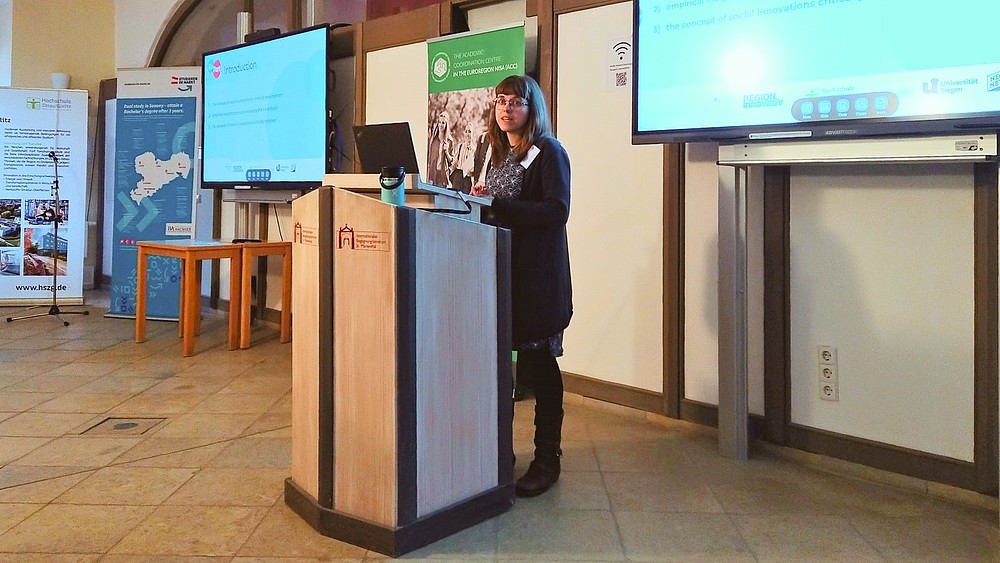TRAWOS project BePart presents initial results to the scientific community at several events

In the current scientific and political discussions on structural change processes and the transformation of structurally weak rural regions and their development potential, the concept of social innovation has gained in importance in recent years. In political discourse in particular, this is associated with the hope of"finding viable and sustainable solutions to the challenges facing our society".
The BePart project was represented at the ACC Forum with a presentation entitled"Participation in structural change - Understanding social innovations in Lusatia from a life-world perspective" and offered insights into the challenges and opportunities of the concept of social innovation in the context of structural change in Lausitz. With the help of initial empirical data from a case study, examples were used to examine how biographical influences and previous experiences with transformation and change influence future attitudes and the way in which current structural change processes are negotiated in rural areas.
The ACC Forum was organized by the Academic Coordination Centre in the Neisse Euroregion and took place on 19 and 20 October 2023 under the motto"From Change to Transformation". The conference provided a platform for research institutions in the Euroregion and beyond to present and discuss current topics.
The BePart project examines biographical and collective experiences in order to gain a better understanding of structural change and the feasibility of social innovations. The research is also based on the assumption that community life no longer takes place exclusively in physical locations, but also in digital media and networks.
The BePart research team presented the challenges and opportunities of linking online and offline data in community research at the Open Conference of the Cultural Sociology Section at the Bauhaus-Universität Weimar, which took place from September 21 to 22, 2023. This topic is becoming increasingly important in light of advancing digitalization and the effects of the coronavirus pandemic. Although online and offline activities are increasingly merging, this aspect has often been neglected in sociological research.
The topic was also discussed at the Open Annual Conference of the Media and Communication Sociology Section of the German Sociological Association, which took place at the Institute for Advanced Study in the Humanities in Essen from October 5 to 6, 2023 . This conference offered media scientists and sociologists from various disciplines the opportunity to discuss the fundamental question of the relationship between media communication and social reality. The lecture examined whether online representations should be seen as extensions of the offline world or whether they represent independent, translocal knowledge communities and communities that emerge via the internet.